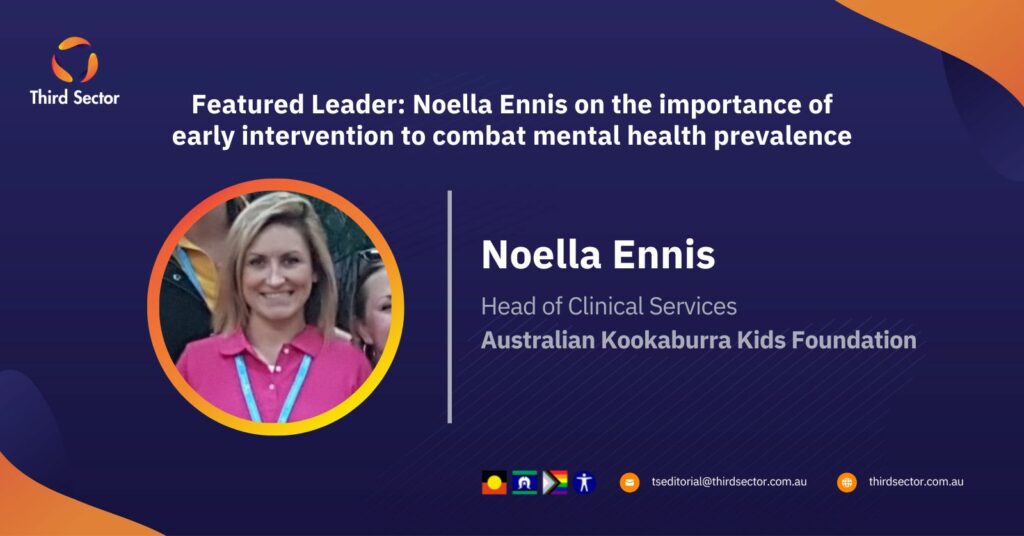With suicide rates and mental illness prevalence at alarming levels in Australia, early intervention is imperative to save lives and strengthen communities.
Australian Kookaburra Kids Foundation Head of Clinical Services Noella Ennis sheds light on this critical need and the multifaceted benefits of early support.
Noella revealed troubling statistics that over 1.5 million Australians have made suicide plans and almost 950,000 have attempted suicide. “No one is untouched by the ripple effects of suicide.”
“However, with the right support, it is preventable. Early intervention can have a significant positive impact on a person’s prognosis,” she said.
In an intricate web of familial dynamics, Noella explained: “Children bear the weight of parental mental health problems, with an estimated 314,000 children aged 4-11 experiencing a mental disorder.”
“Parental mental health problems and substance abuse are risk factors for child abuse and neglect, alongside homelessness and domestic violence. Childhood presents the greatest opportunity for intervention. Investing in prevention and early intervention gives children the best opportunity for good mental health and wellbeing.
Noella emphasised that early intervention provides skills and resources to interrupt emerging issues and encourage wellness. In her words:
“It is particularly important for children and young people, for whom mental illness can have profound, long-term consequences. By providing early intervention, we can help individuals and families to cope with mental illness, reduce the burden on the economy, and improve social wellbeing.”
Sharing a story from the Australian Kookaburra Kids Foundation revealed how early access to the Kids Helpline taught a young girl resilience. As Noella recounted:
“Thanks to the Foundation for educating this young girl about the Kids Helpline, the young girl was able to learn about a tool that she could later utilise to overcome her problems and become a stronger and more resilient person.
Through education and support, the girl found solace in the Kids Helpline, showcasing the tangible impact of early intervention on a child’s resilience and mental well-being.
Reducing stigma requires collective effort across healthcare and government, Noella stated. But with compassion, we can build an Australia supportive of early mental health assistance.
“No initiative is too small in the battle against mental health stigma,” Noella affirms. She navigates the national framework for recovery-oriented mental health services, emphasising self-determination, personalised care, and community participation.
She elucidates Australia’s initiatives to reduce stigma, reinforcing the collaborative efforts required to foster a supportive and inclusive environment.
This article was originally written and published by Ritchelle Drilon on the Healthcare Channel.












